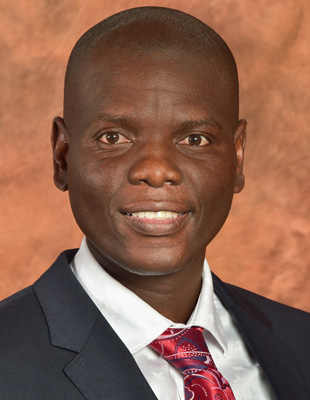 This year marks the 25th year of our constitution coming into effect, and there is no better way to celebrate than by bearing witness to the effective and deliberate affirmation of section 179 of our constitution, without fear, favour or prejudice.
This year marks the 25th year of our constitution coming into effect, and there is no better way to celebrate than by bearing witness to the effective and deliberate affirmation of section 179 of our constitution, without fear, favour or prejudice.
The National Prosecution Authority (NPA) derives its mandate from section 179, which affords it power to institute criminal proceedings on behalf of the state and in effect use any necessary functions to achieve justice for the people.
With a sense of great judicial clarity, justice Yvonne Mokgoro advanced an important principle in her inquiry report on NPA matters, when she held that “in the face of SA’s painful history and its struggling inequality, it is the rule of law that holds every individual to the same standard and in so doing recognises the inherent dignity within every individual.
“Whether one wields power or is of the most vulnerable, the rule of law guarantees equal treatment. Without it the vision of a constitutional democracy is dead in [the] water.”
While many South Africans have decried the slow turning of the wheels of justice, President Cyril Ramaphosa acknowledged this sentiment while not mincing his words when he stated that nothing impedes law enforcement agencies from discharging their duties by implementing the findings of the Zondo commission.
There is no question that the Zondo commission report findings must be implemented in a manner that increases public confidence that everyone is indeed equal before the law, regardless of status, and that the report is not gathering dust in government offices.
Often people contend that SA formulates brilliant plans but lacks implementation, but the contentious question arising from that assertion still remains how anyone would attest to this when there exists no implementation and evaluation of said great plans. Plans that do not bear fruit will not fulfil the aspirations of our much-vaunted constitution. It will mean nothing if the rule of law is not felt in every corner of the nation.
Judges are viewed as the steadfast custodians of the nation’s constitutional democracy, and the NPA ought to be seen to be the reliable and sharpened sword that must, without favour or prejudice, boldly enforce the rule of law.
We must not be under any illusion that the prosecuting authority has been immune from state capture malfeasance. Budget cuts have impeded the rebuilding phase despite the government’s best efforts. These structural economic obstacles persist and are worsened by the global pandemic, which has put obstacles in the way of SA achieving a new growth path.
This situation requires clarity of purpose, innovation and the utmost determination to pursue those who have callously derailed our constitutional democratic gains.
The cost of the Zondo commission has often been the focus of discussions, with an emphasis on its return on investment. Its value-add has proved to be worth far more than the money spent on it.
Our attempt to reconfigure a nation that almost lost its soul to the highest bidder cannot be quantified. In any event, if one sought to quantify it, should we not offset the amount spent against the following recoveries?
In the high court in Bloemfontein, the NPA has been granted an unlimited restraint order to the value of R520m for assets regarding various Gupta-linked companies. A preservation order was also filed by the NPA for Optimum Mine, estimated at R8bn. This on the back of R870m and R1.1bn recovered from McKinsey for its involvement in the Transnet and Eskom sagas respectively. A total R217m has also been recovered from Bain, and the Special Investigating Unit has recovered more than R1.5bn from ABB SA.
Is this progress we should ignore or build on? Witnessing the masterminds serving time for facilitating some, if not all, of these transactions is desirable. But we should not spurn the results that are clearly evident thus far.
Future generations will view this moment as an era in which SA broke the shackles of corruption, when those armed with power to dispense the rule of law succeeded with the full support of the government, the private sector and civil society. Of course, more can and should be done.
There is no better time to ensure that the dagger of justice penetrates deep into the veins and arteries of the corruption that has destabilised our hard-won democracy and delayed our constitutional promise.
Ronald Lamola is Minister of Justice and Correctional Services





